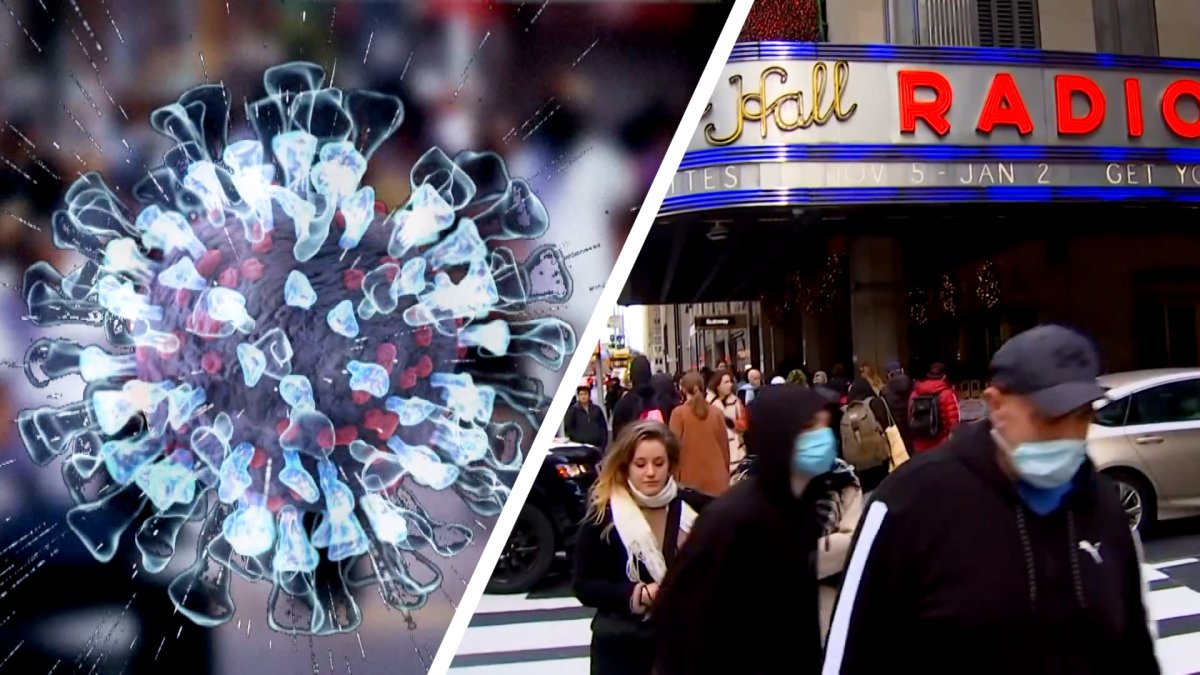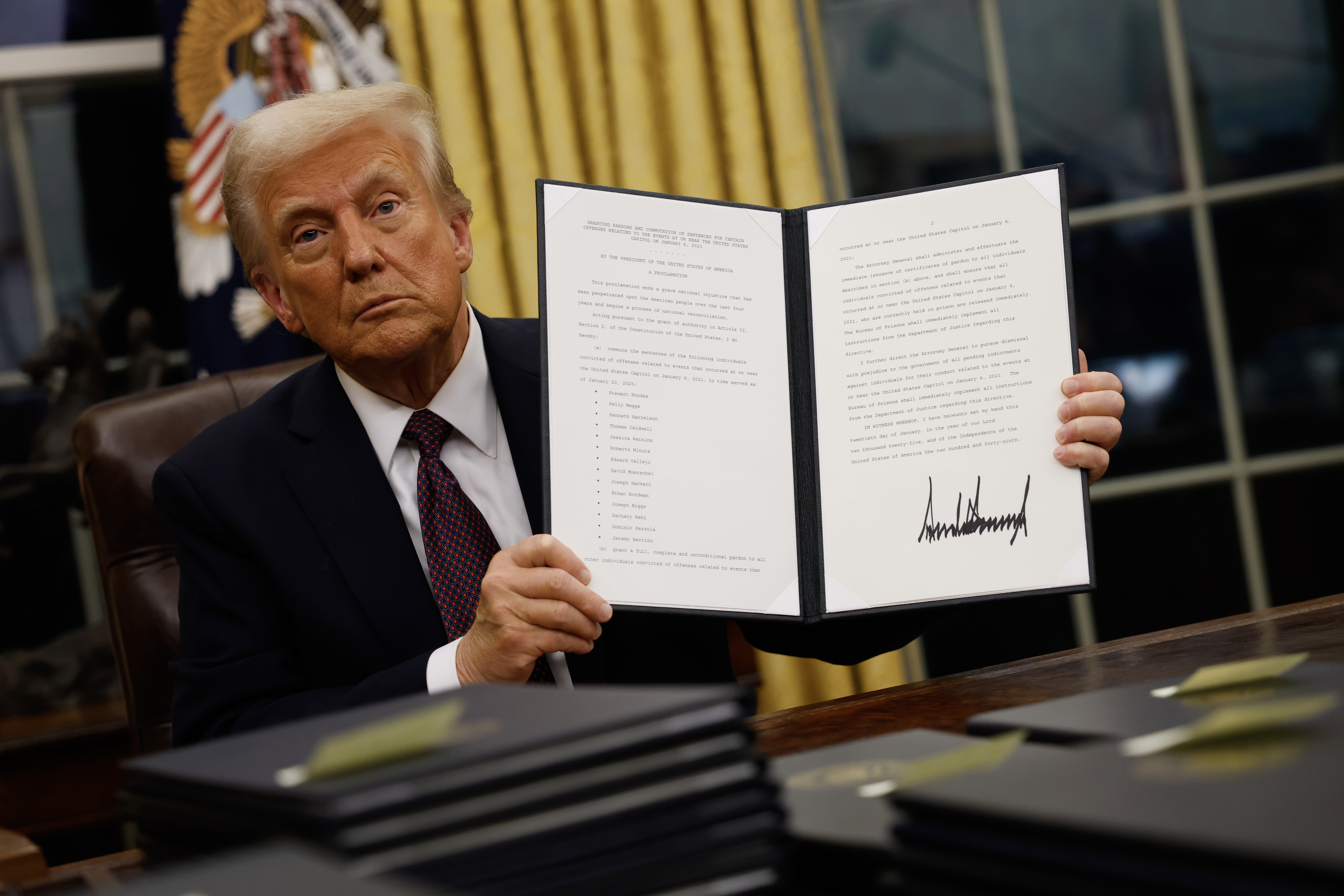
The omicron COVID variant is a growing cause of concern during the holiday season as New Yorkers anticipate travel and group events, but should we cancel plans? Here’s what several experts suggest. News 4’s Linda Gaudino reports.
Cases of the omicron variant have been reported across the tri-state leaving some residents wondering what to do about upcoming holiday travel and events. NBC New York spoke to several top doctors on how to navigate the holidays.
Dr. Jeannie Kenkare, Chief Medical Officer at PhysicianOne, does not believe this is time to panic or cancel plans. If case numbers continue to rise, you may want to reconsider gatherings moving forward.
"New York is a place where people look forward to visiting during the holidays. A lot of the measures that we know are helpful and preventative from getting the infection should still be part of that thought process," Dr. Kenkare told NBC New York.
Who Are You Meeting?
Get Tri-state area news delivered to your inbox. Sign up for NBC New York's News Headlines newsletter.
Each gathering has its own risk profile when assessing any potential spread while holding a get-together, according to experts. The following are a few variables to consider when making arrangements.
- Vaccinated vs. Unvaccinated
- Underlying health conditions
- Individuals ages 60 and over
- Travel from high-transmission area
It's important for the group to share decisions on what takes precedence this year while mitigating risk factors.
News
One expert told NBC New York that, when deciding at-home versus dining-out options, double-check that everyone is on board and take note of the transmission levels within the neighborhood.
If hosting a party at a residence, be sure to note the air ventilation by keeping certain windows open if temperatures allow.
Questions of inviting elderly relatives to the home may come up. These members have a higher risk of complications down the line if infected as opposed to the younger, healthier population.
Every time an individual takes a step to reduce the transmission to others, they do help others in their community and own families, so there's never a bad time to take safety precautions.
Dr. J.D. Zipkin
Chief Medical Officer at GoHealth Urgent Care
Where Are You Traveling?
The omicron variant has been detected in at least 19 U.S. states. The first confirmed case was reported on Dec. 1 in California, a vaccinated traveler who returned after a trip to South Africa.
New York has identified 12 omicron cases within the state, according to Gov. Kathy Hochul said on Monday. The update came as New York City's Mayor Bill de Blasio announced a sweeping vaccine mandate for all workers in the city's private sector.
"We’ve got omicron as a new factor. We’ve got the colder weather which is going to really create additional challenges with the delta variant, we’ve got holiday gatherings," de Blasio said Monday on MSNBC. "We in New York City have decided to use a preemptive strike to really do something bold to stop the further growth of COVID and the dangers it’s causing to all of us."
When it comes to holiday travel, domestic or international, Dr. Daniel Caplivski says the first point to consider is vaccination status.
Dr. Caplivski is the Director of the Icahn School of Medicine Travel Medicine Program. If you are unvaccinated, it is probably best to hold off on travel. The holiday season could be motivation to get a dose, he said.
Tightened international travel protocols are in place starting Monday. Anyone, including vaccinated citizens, flying into the U.S. must provide a negative Covid test taken within one day of departure.
No testing is required after landing, but the CDC is offering free, voluntary tests to help track down Covid variant spread.
"Some of its the pent-up demand over the last couple of years of people who really wanted to travel or come to New York. With vaccination, it's something that's doable," noted Dr. Caplivski.
Check with local governments in the destination locations. See if there are travel recommendations posted by the CDC particularly when contemplating high-risk areas.
What Can I Do to Prevent Infection?
The omicron strain might be taking over the news cycle, but experts say there is still much to be learned. In comparison, Covid's delta variant is the leading variant of concern, amounting to 98% of cases tested over the last four weeks.
Preliminary data shows a bit more "encouraging" picture, according to White House chief medical advisor, Dr. Anthony Fauci, who cautions more information is needed.
A report released Sunday from the South African Medical Research Council suggests omicron cases have a milder infection, but too soon to tell if it poses a greater risk of death.
The best way to prevent Covid infection is by continuing to follow the cautionary measurements.
- Social distance
- Wear a mask when indoors
- Mask up in a crowded outdoor setting
- Wash hands
- Get tested if feeling symptoms
- Keep social circles small
- Receive first vaccine or booster shot
Dr. Kenkare notes that testing is key when picking up an illness before one is considered contagious and allowing self-isolation to curb the spread.
Other respiratory illnesses, such as influenza, are prone to pick up during the winter months. Consider getting a Covid booster and flu shot at the same time.
Will There Be More Variants?
While omicron is the latest variant of concern, it will not be the last. Based on all experts NBC New York spoke with, it is almost inevitable this may happen again.
"Without a doubt, hands down, we will see more variants. This is not the end," said Dr. Kenkare, who personally feels Covid is going to be here for a long time.
The CDC is monitoring eleven different strains of Covid, including alpha, beta, gamma, omicron, and delta.
The coronavirus is known to mutate, similar to the influenza virus. Updated flu vaccines roll out each year, and Covid shots could follow in the same footsteps.
When measuring the possibility of a new variant, Dr. Zipkin said that healthcare facilities are not lost in a "back-to-start" moment. Variants are part of the process in creating the vaccine, likening the Covid pandemic to the history behind the Polio vaccine.
"Variants aren't just part of the process but are truly expected. We saw this even with things like Polio. The difference, and the reason Polio is eradicated, is because the current modern-day vaccine against Polio effectively treats three different strains of Poliovirus," said Dr. Zipkin.
The key to a true post-pandemic world is not just more immunity, it's better immunity. That comes with time in developing increased treatments to push past the pandemic.
Pharmaceutical giants, Pfizer and Merck have released new oral medications in a potentially game-changing step against the Covid pandemic.
The Food and Drug Administration's Antimicrobial Drugs Advisory Committee endorsed the emergency authorization of Merck's pill called Molnupiravir, an oral antiviral drug designed to treat high-risk adults with mild to moderate symptoms of Covid-19.
Pfizer has developed a separate oral pill, named Paxlovid, which is a similar at-home medication and taken in combination with a widely used HIV drug. The company submitted an application last month to the FDA for emergency authorization.
President Joe Biden announced last month that the U.S. has purchased 10 million courses of Paxlovid - an over $5 billion venture - to ensure easy accessibility for Americans. The White House hopes to start delivering pills by the end of this year.
In a clinical trial, Pfizer found the pill reduces hospitalization and death by just under 90% when taken within three days of symptom onset.
Omicron Symptoms to Watch?
Experts say it is too early to tell if the omicron variant presents unique symptoms versus other strains. Some promising news is that most U.S. breakthrough cases provided mild symptoms, so far.
"I'm in urgent care, and we see patients every day walking in with various symptoms. The symptoms of the omicron variant seem to be very much in line with what we've seen before," said Dr. Kenkare.
When comparing the delta strain to those previously found variants, Dr. Caplivski noticed a quicker onset of symptoms during the course of a patient's exposure to illness. However, the severity of the omicron variant is still in question and may depend on vaccinated vs. unvaccinated cases.
One of the first NY omicron cases was detected on Long Island by GoHealth. Dr. Zipkin added that it is crucial to note recent travel when detecting future omicron cases.
"The reason we were able to identify one of the first omicron cases in New York has more to do with the background of the story - where people are coming from or going to," said Dr. Zipkin.



